|
by Kate Mayer
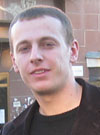
Dr. Zgjim Limani
When Zgjim Limani, M.D. studied medicine at the University of Prishtina in Kosova during a post-war period, the school had to be rebuilt after severe vandalism by outside aggressors and the bombing raid by NATO. The Balkans had been isolated for two decades by the many wars in the area. “This impacted our health system, too,” says Dr. Limani. “Losing contact with the rest of the world in a period of many new developments in medicine was a huge loss.”
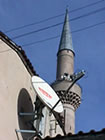
High-speed Internet
“WiRED was among the first non-governmental organizations to start working in the Balkans and among the first to provide access to much needed medical information,” says Dr. Limani. These resources included the World Health Organization’s HINARI database, a library of medical information providing access to over 6,400 journals. Through computers clustered in Medical Information Centers (MICs), WiRED brought teleconferencing lectures to the area for the first time.

Patient video visit
“Besides providing professional benefits, teleconference meetings with doctors from the region enabled them to share organizing experiences, which resulted in better healthcare services,” notes Dr. Limani.
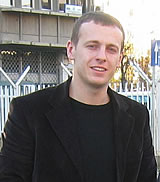
Dr. Limani started helping WiRED in Kosova, Bosnia, and Herzogovina in 2004 while earning his medical degree. He established contacts with local hospitals, determining their needs and implementing projects in close cooperation with professor Gary Selnow, Ph.D., WiRED’s founder and executive director. Dr. Selnow had contacted a senior administrator for help with a medical information project at the medical school and regional hospitals. The administrator recommended a leading ear, nose, throat (ENT) specialist, Dr. Adem Limani, who in turn recommended his son, Zgjim, then in medical school and an information technology wiz.
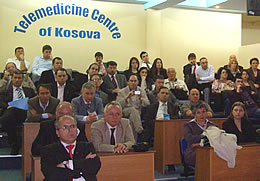
First multi-nation Medical Conference
in Kosova
“For years, Kosova had been isolated and WiRED provided a way to reintegrate the Kosova medical community with others,” says Dr. Selnow, who has been immensely pleased with Dr. Limani’s work. “He's very organized and approaches everything methodically. He also has a pleasant way about him and knows how to present an idea and get results. He has terrific language skills and is fluent in Albanian, Serbian, and English. He has been the perfect program coordinator.” Most recently, Dr. Limani coordinated WiRED’s teleconference participation in the first multi-nation medical conference in Kosova since the province declared its independence in 2008.
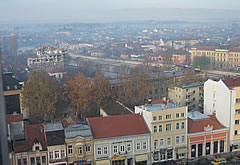
Prishtina, Kosova
Dr. Limani’s wealth of knowledge is largely thanks to his parents, who did everything possible to get their children a proper education during a period when Albanians were not allowed to go to school in Kosova. The family’s emphasis on education is reflected in the career choices made by each family member. Dr. Limani has two sisters – Rina is a doctor and resident in pathology, and Arta studied economics and works with a U.S. auditing and consulting company in Prishtina. Dr. Limani’s mother, who died several years ago, was a professor of English and his father is an ENT professor at the University of Prishtina.
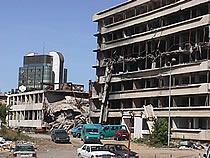
The ravages of war
Dr. Zgjim Limani notes, “I grew up in an environment where I heard a lot about ear, nose and throat ailments.” He became interested in that specialty and jokes, “I studied medicine just to continue my specialization in ENT.” This year he started his Ph.D. studies in Biomedicine and Health Sciences at the University of Zagreb, School of Medicine in Zagreb, Croatia.
In his spare time, Dr. Limani loves reading, playing chess, and skiing—which he does despite a fear of heights. His persistence in the face of obstacles has also helped WiRED succeed in an area rife with ethnic tensions and other hardships. Dr. Limani sees the future role of WiRED in the region as “providing resources and training for specific medical interventions that we will start implementing in the near future such as cardio-surgery, endoscopy, or laser technology.”
Editing by Annie Stuart; layout by Brian Colombe.
^ Back to the Top
|



